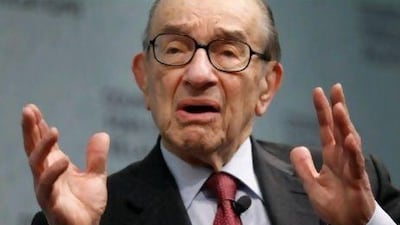My friend and former neighbour Frank Johnson, one of Britain's most distinguished journalists in an age when the trade was respected - a time before the age of phone hacking and trawling through wheelie bins - had a column that he dusted down and served up every August. August is traditionally the silly season for newspapers as well as politicians. Parliament is in recess, most of the bankers and businessmen are sailing at Cowes or eating bean soup in Tuscany. Nothing happens, is the refrain. And in newspaper terms, no news is bad news.
However, my old pal would point out that far from being a dull time of year, a number of rather key events have occurred in the summer months. Take, for example, the declaration of the Great War, that momentous European struggle that was the beginning of the end for the British Empire and resulted in the collapse of the Ottoman Empire, and the subsequent deaths of almost 40 million people.
Few observers saw it coming, even when the Archduke Franz Ferdinand was bumped off by Gavrilo Princip. The first sign of trouble was a sharp dip in bond prices. Shares were hit too. John Maynard Keynes, the economist and policymaker who was a courageous investor who saw nothing wrong with a touch of insider dealing, thought he had the inside steer to the crisis and bought Rio Tinto and Canadian Pacific shares, only to see them tank. On August 4, 1914, Britain declared war on Germany and Sir Edward Grey, the British foreign secretary, said: "The lamps are going out all over Europe. We shall not see them lit again in our time."
Yes, that probably gave the journos back in 1914 something to write about. Or take August 6, 1945. For the first time a nuclear bomb was dropped on civilians when the Enola Gay flew over Hiroshima to unleash its load and provoke a mushroom cloud. A few days later, something similar happened over Nagasaki. Anne Frank was arrested in August, income tax was collected for the first time, and the twin cultural icons of the 1960s, Elvis Presley and Marilyn Monroe, both died.
Yes, much as we would all like August to pass away quietly, sometimes it doesn't. This year August looks promising for the budding Frank Johnsons of the future with columns to fill in years to come. But for the rest of us, it looks rather bleak and far too busy. Ramadan may be a time of contemplation in the Muslim world, but it is not clear how the Arab street will act. Will it be a month of Fridays with the traditional after-prayers gathering every day, or will the heat and calm prevail?
Arab world apart, August looks unusually combustible in both the US and Europe. American politicians have to decide by Tuesday whether to raise a self-imposed debt ceiling and allow the government to borrow or print more greenbacks, the very spectre of which is propelling the dollar to record lows. And the euro, despite last week's last-minute deal, remains perched on a cliff edge. If the Americans cannot reach a compromise they will lose their coveted "AAA" rating and also provoke the biggest financial storm we have seen since the last very big one. If just the hint that Dubai World might default was able to send stock markets spinning from Shanghai to Sao Paulo, imagine the unravelling that would have to occur if the US government could no longer pay its bills.
George Soros, who you might think would be rubbing his hands with glee - after all, he's the fellow who famously broke the Bank of England and picked up a tasty few billion in the process - has decided instead to hand back investors' money and just deal on his own. The supposed reason for this is that he is unwilling to introduce the new regulations that are designed to protect investors and reassure institutions. Alan Greenspan, the former chairman of the Federal Reserve, wrote in the Financial Times on Wednesday that looser regulation is needed. He is the fellow charged by many as helping to spark the credit crunch of 2008. He certainly encouraged financial institutions to take one-way bets with little regard for risk.
The governments of Europe and the US seem either unwilling or unable to cope. Most people see the American debt ceiling as the most intractable, but I still think Europe is the most damaged. It reminds me of one of those financial institutions such as Chemical Bank, which merged with Manufacturers Hanover, then took over Chase Manhattan Bank and JP Morgan, with all the growth masking structural problems. Bank of America was busy doing the same sort of thing. Europe has spent more time growing than working. Now it's time to grow up, but nothing ever happens in August.

